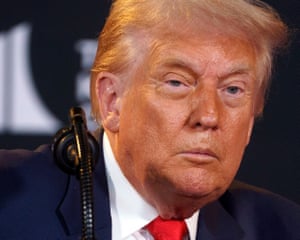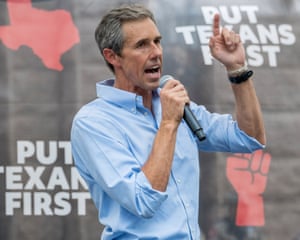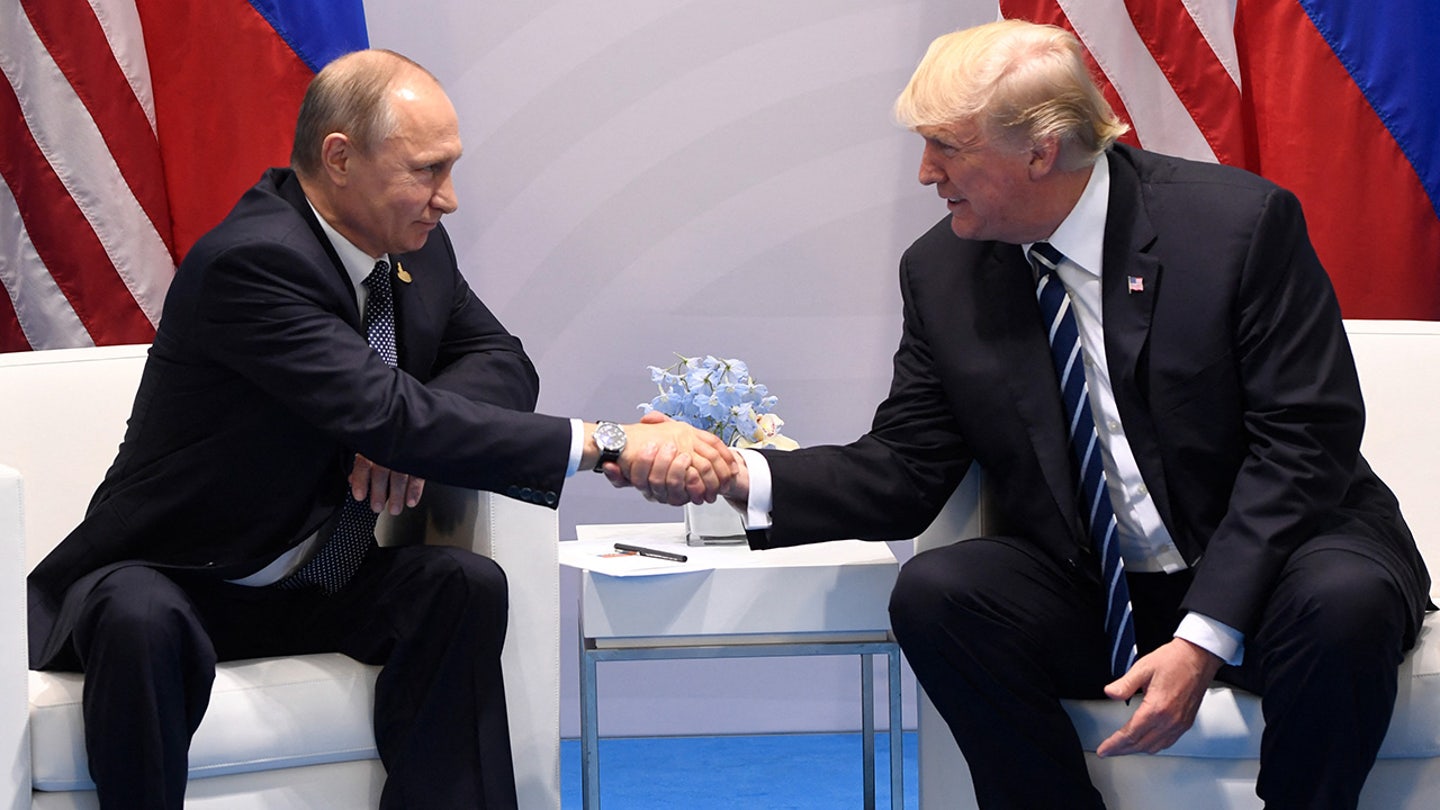
Scientists rush to bolster climate finding Trump administration aims to undo
Entities mentioned:
- Trump administration: Control, Power, Influence
- Scientists: Professional pride, Duty, Determination
- Donald Trump: Power, Control, Influence
- National Guard: Duty, Obligation, Security
- Democrats: Justice, Righteousness, Moral outrage
Article Assessment:
Credibility Score: 65/100
Bias Rating: 30/100 (Lean Left)
Sentiment Score: 25/100
Authoritarianism Risk: 70/100 (Authoritarian Tendencies)
Bias Analysis:
The article leans left in its framing, focusing on actions by the Trump administration that are presented in a critical light. The language used and the selection of topics covered suggest a perspective more sympathetic to opposition to Trump's policies.
Key metric: Environmental Protection and Climate Change Policy
As a social scientist, I analyze that this article highlights a significant conflict between the scientific community and the Trump administration regarding climate change findings. The administration's efforts to undo or discredit scientific research on climate change could have far-reaching implications for environmental policy and global climate initiatives. The deployment of the National Guard in Washington DC and potential expansion to other cities suggests an escalation of federal power and control over local jurisdictions, which could impact democratic norms and civil liberties. The article also touches on various other issues such as healthcare funding, immigration policy, and electoral processes, indicating a broad range of policy areas under scrutiny or subject to change by the administration.

How Ken Paxton keeps pushing the legal envelope
Entities mentioned:
- Ken Paxton: Ambition, Power, Influence
- Texas House Democrats: Righteousness, Justice, Duty
- Donald Trump: Power, Influence, Legacy
- John Cornyn: Self-preservation, Duty, Professional pride
- Beto O'Rourke: Justice, Influence, Moral outrage
- Barack Obama: Legacy, Justice, Influence
- Joe Biden: Duty, Justice, Unity
Article Assessment:
Credibility Score: 75/100
Bias Rating: 55/100 (Center)
Sentiment Score: 35/100
Authoritarianism Risk: 65/100 (Authoritarian Tendencies)
Bias Analysis:
The article presents a balanced view of Paxton's actions, including both supporter and critic perspectives. While it leans slightly critical of Paxton, it provides context and background for his actions without overtly partisan language.
Key metric: Political Polarization Index
As a social scientist, I analyze that Ken Paxton's aggressive legal tactics and partisan use of his office as Texas Attorney General significantly contribute to increasing political polarization. His actions, from challenging election results to targeting Democratic policies and blue states, exacerbate the divide between conservatives and liberals. This approach, while potentially beneficial for his political ambitions, risks undermining the integrity of democratic institutions and the rule of law. The article highlights how Paxton's strategies, though sometimes legally questionable, resonate with his conservative base, further entrenching partisan divisions. This pattern of using legal authority for political gains could have long-term consequences on public trust in government institutions and the balance of power between state and federal authorities.

Today in FocusStephen Miller, Trump’s immigration mastermind – podcast
Entities mentioned:
- Stephen Miller: Influence, Control, Power
- Donald Trump: Power, Control, Legacy
- Beto O'Rourke's group: Influence, Justice, Unity
- Marco Rubio: Influence, Duty, Security
- Democratic cities: Self-preservation, Unity, Security
- Democratic socialists: Ambition, Justice, Influence
- Zohran Mamdani: Ambition, Justice, Recognition
- Ghislaine Maxwell: Self-preservation, Fear, Control
Article Assessment:
Credibility Score: 70/100
Bias Rating: 40/100 (Lean Left)
Sentiment Score: 35/100
Authoritarianism Risk: 55/100 (Mixed/Neutral)
Bias Analysis:
The article compilation leans slightly left, evidenced by the focus on Democratic perspectives and critical tone towards Trump administration policies. However, it does include diverse viewpoints and topics, maintaining a degree of balance.
Key metric: Political Polarization Index
As a social scientist, I analyze that this article compilation reflects increasing political tensions and polarization in the United States. The various topics covered, from immigration policies to international relations and domestic security concerns, highlight the complex challenges facing the nation. The restraining order against Beto O'Rourke's group and the preparation of Democratic cities for potential federal intervention indicate growing distrust between different levels of government and political factions. The mention of Democratic socialists' perceived winning streak suggests a potential shift in political ideologies. The focus on Trump's actions and statements, both domestically and internationally, continues to be a central theme in US politics, further dividing public opinion. This amalgamation of issues and conflicts is likely to exacerbate political polarization, making it increasingly difficult to find common ground on critical national issues.

Three GOP-led states to send hundreds of National Guard troops to DC as White House escalates police takeover
Entities mentioned:
- Donald Trump: Power, Control, Security
- Patrick Morrisey: Loyalty, Duty, Security
- Henry McMaster: Loyalty, Duty, Security
- Mike DeWine: Duty, Security, Obligation
- Muriel Bowser: Self-preservation, Justice, Freedom
- Sean Curran: Duty, Security, Professional pride
- Robert White: Moral outrage, Justice, Freedom
- Pam Bondi: Power, Control, Loyalty
- Terry Cole: Duty, Professional pride, Security
- Pamela Smith: Professional pride, Duty, Self-preservation
Article Assessment:
Credibility Score: 75/100
Bias Rating: 45/100 (Center)
Sentiment Score: 35/100
Authoritarianism Risk: 70/100 (Authoritarian Tendencies)
Bias Analysis:
The article presents multiple viewpoints, including those of the Trump administration and its critics. While it gives more space to concerns about federal overreach, it also includes the administration's justifications for its actions.
Key metric: Domestic Political Stability
As a social scientist, I analyze that this article highlights a significant escalation in federal intervention in local law enforcement, particularly in Washington, DC. The deployment of National Guard troops from multiple states to the nation's capital, at the request of the Trump administration, represents a marked shift in the balance of power between federal and local authorities. This move, coupled with the attempted federalization of DC's police force, raises concerns about the erosion of local autonomy and the potential for increased authoritarianism. The article suggests a growing tension between the Trump administration's stated goals of reducing crime and 'beautifying' the city, and the Democratic local government's resistance to what they perceive as federal overreach. This situation could have far-reaching implications for domestic political stability, potentially setting precedents for federal intervention in other cities and exacerbating existing political divisions.

Gavin Newsom thanks you for your attention to redistricting
Entities mentioned:
- Gavin Newsom: Ambition, Power, Recognition
- Donald Trump: Power, Control, Self-preservation
- Arnold Schwarzenegger: Justice, Legacy, Influence
- Nancy Pelosi: Loyalty, Power, Influence
- Lorena Gonzalez: Justice, Moral outrage, Influence
- Alex Padilla: Loyalty, Unity, Recognition
- Maxine Waters: Loyalty, Justice, Recognition
Article Assessment:
Credibility Score: 70/100
Bias Rating: 35/100 (Lean Left)
Sentiment Score: 45/100
Authoritarianism Risk: 55/100 (Mixed/Neutral)
Bias Analysis:
The article leans left, focusing primarily on Democratic perspectives and Newsom's justifications. While it includes some criticism of Newsom, it generally frames his actions in a positive light and provides limited space for opposing viewpoints.
Key metric: Electoral Integrity
As a social scientist, I analyze that this article highlights a significant shift in California's approach to redistricting, led by Governor Gavin Newsom. This move represents a departure from the state's previous commitment to an independent redistricting commission, potentially impacting electoral integrity. The initiative, framed as a response to Republican actions in other states, particularly Texas, signals an escalation in partisan redistricting battles. This could have far-reaching consequences for national political representation and the balance of power in the U.S. House of Representatives. The article also underscores Newsom's potential presidential ambitions and his efforts to position himself as a strong opposition leader against the Trump administration. The redistricting fight is presented as a key battleground for Democratic resistance and a test of Newsom's leadership on the national stage. However, this approach risks further polarization and could potentially undermine public faith in democratic processes, depending on how it is perceived and implemented.

From admiration to Alaska: A timeline of Trump and Putin’s high-stakes encounters
Entities mentioned:
- Donald Trump: Power, Influence, Recognition
- Vladimir Putin: Power, Control, Influence
- Rex Tillerson: Duty, Professional pride
Article Assessment:
Credibility Score: 70/100
Bias Rating: 65/100 (Lean Right)
Sentiment Score: 55/100
Authoritarianism Risk: 45/100 (Mixed/Neutral)
Bias Analysis:
The article leans slightly right, evident in its sourcing from Fox News and focus on Trump's perspective. While it presents a chronological account, it tends to frame Trump's interactions with Putin more positively than critically.
Key metric: U.S. International Relations Index
As a social scientist, I analyze that this article highlights the evolving relationship between Donald Trump and Vladimir Putin over a decade, focusing on their interactions during Trump's presidency and beyond. The timeline suggests a complex dynamic of mutual admiration, diplomatic engagement, and geopolitical tensions. The proposed 2025 meeting in Alaska, amidst the ongoing Ukraine conflict, indicates a potential shift in U.S.-Russia relations under a hypothetical second Trump presidency. This meeting could significantly impact global diplomacy, particularly regarding the Ukraine situation and broader U.S.-Russia cooperation. The article's presentation of these high-stakes encounters underscores the personal nature of international relations and the potential influence of individual leaders on global affairs.

Alec Baldwin slams Trump's 'insane' DC takeover, warns he may target other cities and sports leagues next
Entities mentioned:
- Alec Baldwin: Moral outrage, Indignation, Wariness
- Donald Trump: Power, Control, Deflection
- Washington D.C. Police: Duty, Professional pride, Security
Article Assessment:
Credibility Score: 55/100
Bias Rating: 30/100 (Lean Left)
Sentiment Score: 25/100
Authoritarianism Risk: 45/100 (Mixed/Neutral)
Bias Analysis:
The article leans left, primarily presenting Baldwin's anti-Trump perspective with minimal counterbalancing viewpoints. The framing of Trump's actions as a 'takeover' and the emphasis on Baldwin's warnings suggest a left-leaning editorial stance.
Key metric: Public Trust in Government Institutions
As a social scientist, I analyze that this article highlights growing tensions between celebrity political commentators and the executive branch, potentially impacting public trust in government institutions. Baldwin's alarmist rhetoric about federal overreach in local law enforcement could contribute to increased anxiety and skepticism among citizens regarding the balance of power between federal and local authorities. The invocation of potential federal control over major cities and even sports leagues suggests a narrative of creeping authoritarianism, which may resonate with audiences already wary of centralized power. However, the credibility of these claims is questionable, given Baldwin's history of hyperbolic statements about Trump. This discourse may further polarize public opinion and erode confidence in the democratic process and institutions.

'Absolutely incredible': B-2 bomber, F-35 escort set stage for Trump-Putin talks in Alaska
Entities mentioned:
- Donald Trump: Power, Influence, Recognition
- Vladimir Putin: Power, Control, Self-preservation
- U.S. Military: Deterrence, Professional pride, Security
- Volodymyr Zelenskyy: Self-preservation, Justice, Unity
Article Assessment:
Credibility Score: 75/100
Bias Rating: 55/100 (Center)
Sentiment Score: 45/100
Authoritarianism Risk: 35/100 (Generally Democratic)
Bias Analysis:
The article presents a relatively balanced view, including both the impressive nature of the military display and its potential implications. While it leans slightly towards emphasizing U.S. power, it also includes perspectives on the gravity and risks of the situation.
Key metric: U.S. Global Influence and Military Projection
As a social scientist, I analyze that this article highlights a significant display of U.S. military power during a high-stakes diplomatic meeting between the U.S. and Russia. The use of advanced military aircraft, particularly the B-2 bomber and F-35 jets, serves as a strategic demonstration of America's technological superiority and global reach. This display appears aimed at influencing the dynamics of the Trump-Putin talks, potentially strengthening the U.S. negotiating position. The choice of location for the summit, closer to Russia yet on American soil, further emphasizes U.S. power projection. The article suggests that this meeting could have implications for the ongoing conflict in Ukraine, with Trump seeking a ceasefire. Overall, this event seems designed to reassert American global influence through a combination of diplomatic engagement and military posturing.

Chuck Todd says Biden's presidency was so 'weak and ineffective' it made people go back to Trump
Entities mentioned:
- Chuck Todd: Professional pride, Influence, Recognition
- Joe Biden: Legacy, Power, Duty
- Donald Trump: Power, Revenge, Recognition
- NBC News: Influence, Professional pride, Recognition
Article Assessment:
Credibility Score: 65/100
Bias Rating: 65/100 (Lean Right)
Sentiment Score: 30/100
Authoritarianism Risk: 45/100 (Mixed/Neutral)
Bias Analysis:
The article leans right due to its focus on criticizing Biden and implicitly favoring Trump's return. While it presents Todd's critique, it doesn't offer counterbalancing perspectives or fact-checking, suggesting a rightward slant in its framing.
Key metric: Political Stability and Absence of Violence/Terrorism
As a social scientist, I analyze that this article highlights a significant shift in American political dynamics, potentially impacting the country's political stability. Chuck Todd's critique of Biden's presidency as 'weak and ineffective' suggests a failure to consolidate democratic norms and address societal divisions post-Trump. The unprecedented return of a former president after a single term out of office indicates volatility in voter preferences and potential dissatisfaction with the current administration's performance. This instability could lead to increased political polarization and potentially affect the country's global standing and internal governance structures.

Mark Cuban says Trump running for a third term would push him into 2028 race
Entities mentioned:
- Mark Cuban: Duty, Self-preservation, Righteousness
- Donald Trump: Power, Ambition, Legacy
- Democratic Party: Unity, Power, Influence
- J.D. Vance: Ambition, Loyalty, Power
- Scott Galloway: Ambition, Recognition, Influence
- Jon Stewart: Influence, Righteousness, Recognition
- James Talarico: Ambition, Influence, Recognition
Article Assessment:
Credibility Score: 70/100
Bias Rating: 55/100 (Center)
Sentiment Score: 45/100
Authoritarianism Risk: 35/100 (Generally Democratic)
Bias Analysis:
The article presents multiple perspectives and quotes directly from the primary source. However, it leans slightly right by focusing on Democratic Party struggles and Trump's influence, while not deeply exploring alternative viewpoints.
Key metric: Political Stability Index
As a social scientist, I analyze that this article highlights the ongoing political uncertainty in the United States, particularly within the Democratic Party. Mark Cuban's conditional stance on running for presidency underscores the lingering influence of Donald Trump on the political landscape, even after his presidency. The mention of Trump potentially seeking a third term, though unconstitutional, suggests a persistent challenge to democratic norms. The Democratic Party's struggle to find new leadership indicates a period of transition and potential ideological shift. Cuban's preference for non-traditional political figures as potential candidates reflects a growing disillusionment with established politicians, which could impact future voter behavior and party dynamics. This situation could lead to increased political polarization and instability, potentially affecting the country's Political Stability Index.